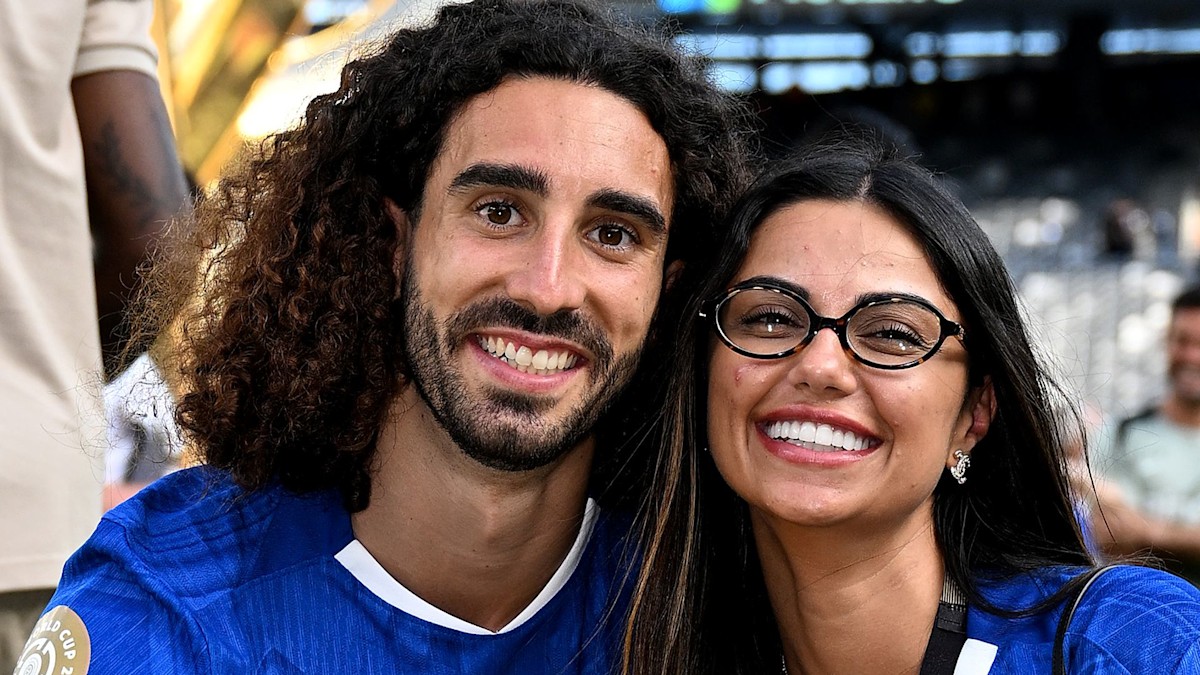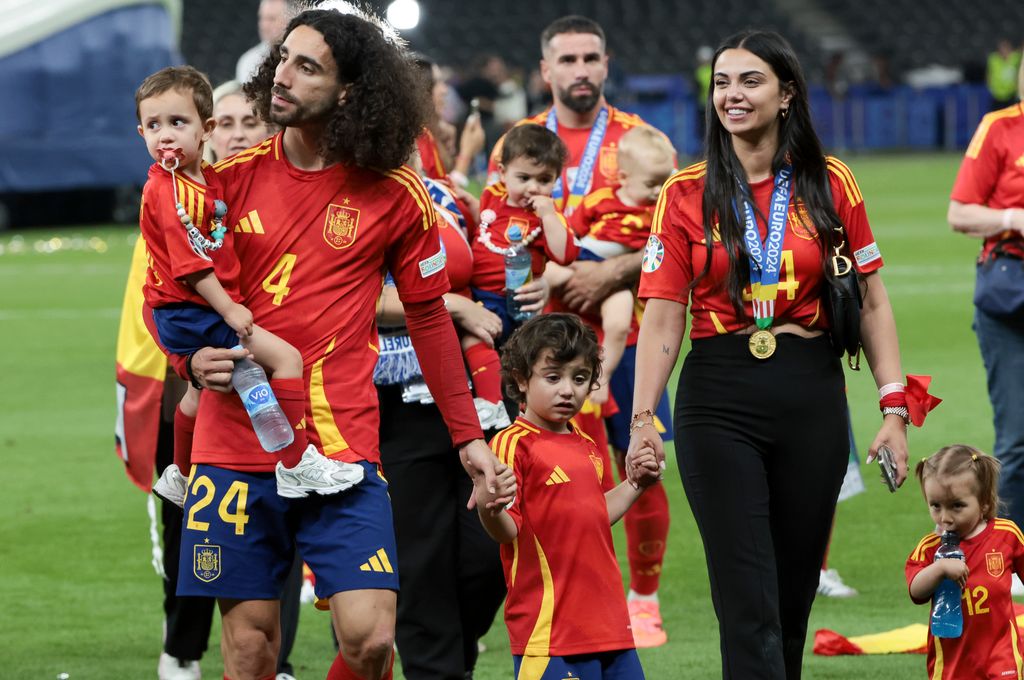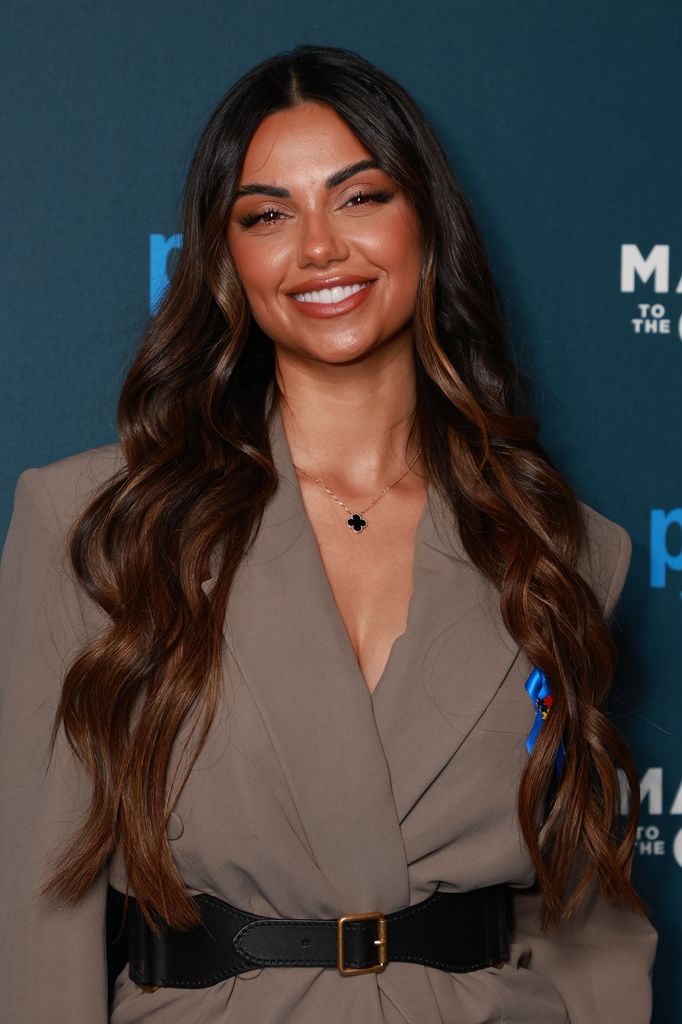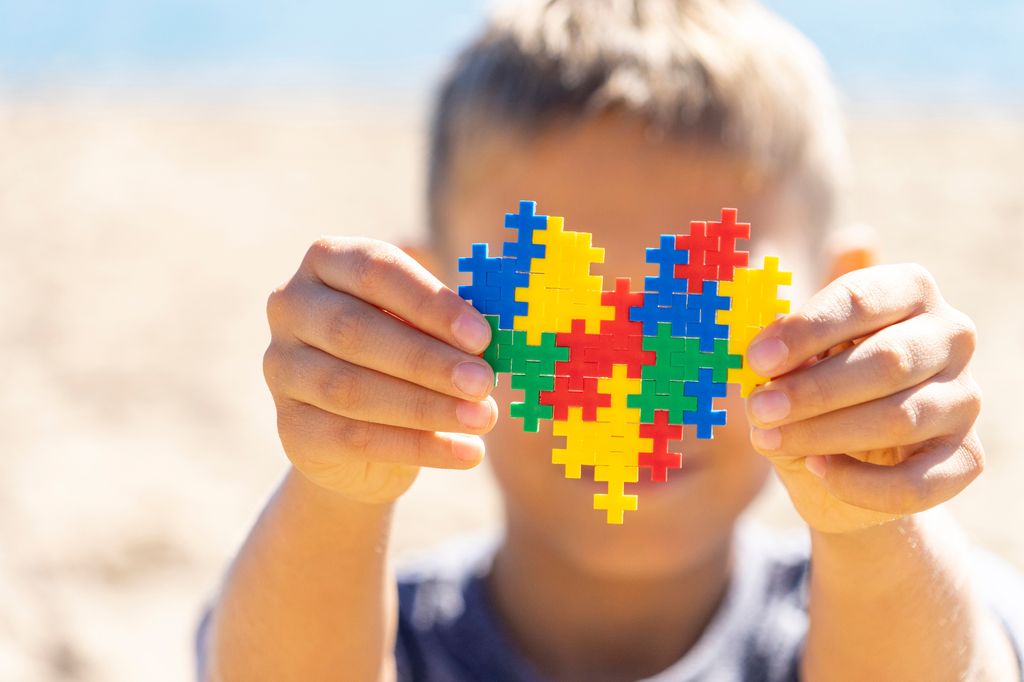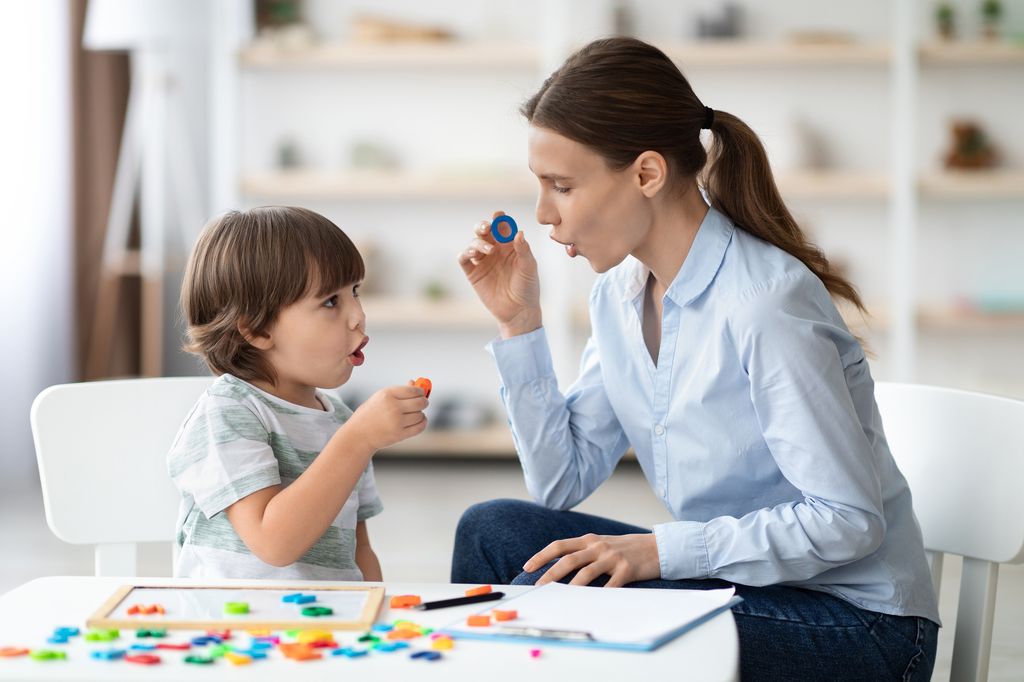Chelsea FC footballer Marc Cucurella and his partner Claudia Rodriguez are a glamorous high profile couple, but they’ve lately been opening up about what life is like behind the scenes as parents of three, including their four-year-old son Mateo, who has autism. Mateo’s journey gained attention in series 2 of the Amazon Prime documentary Married to the Game earlier this year. Marc and Claudia candidly revealed personal details about their life together, getting emotional as they recalled crying every day when their little boy, who is non-verbal, was first diagnosed.
The couple’s experience is one to which many families can relate; the British Medical Association estimates that one in every 100 children in the UK is diagnosed with autism spectrum disorder (ASD).
Mum Claudia, who also shares Río, three, and Bella, one, with her longtime partner Marc, gave some more insight into her own experiences during a solo interview on Spanish TV. In the chat with Mothers: From the Heart (Madres: Desde el Corazón), she opened up about the signs that led her to seek out a diagnosis for her son, and what she hopes for Matteo’s future as he continues therapy and special schooling. And as we highlight Claudia’s story, we also have guidance and advice from a neuropediatrician about parenting a non-verbal child with autism.
Claudia, whose relationship with Barcelona-born Marc goes back to 2018, was 20 years old when the pair welcomed Mateo. About a year after Mateo was born, the young mum soon started to realise that wasn’t quite like other children she knew.
“With Mateo, I noticed something was going on when he was 13 months old, when he started going to nursery,” Claudia said during the interview. “We noticed differences compared to other children, but since he was my first baby I wasn’t really sure if it was normal. Maybe he would just take longer [to develop] than other kids.”
What were the signs that she and Marc, 27, started to notice? “He didn’t make eye contact, he didn’t respond to his name, he was very ‘chilled out’. He didn’t care what we were doing, he wouldn’t pay attention to you… But based on what I knew about autism back then, I didn’t think that was the cause. Because Mateo is super affectionate and it just didn’t add up.”
‘I first noticed differences between Mateo and other children when he was about 13 months old, but since he was my first baby I wasn’t really sure… Maybe he would just take longer [to develop] than other kids’
When Mateo’s speech was delayed, they consulted with doctors who told them that “it happens sometimes, that some children start talking much later”. “They gave me advice about how to help him speak. He’d had an ear operation because he had a lot of ear infections and [doctors] thought he might not be hearing properly. But that wasn’t the problem.
“Put plainly, Mateo has autism. I’m grateful we found out as soon as we did, but I wish I would have realised it much sooner.”
Cucarella signed for Chelsea in 2022, and once the couple settled in London, “I enrolled [Mateo] in a regular school. But we just couldn’t handle the situation anymore. He was having a hard time… They didn’t have the tools to help him and that’s when I said: ‘Wait a minute, maybe we’re going down the wrong path.’
Wasting my time, and wasting my son’s time, isn’t doing us any good. Early intervention is really important, so I found a school that provides therapy for autistic children and I took him there.”
‘We had a really hard time with the diagnosis. It was very tough. It can either separate you or bring you closer together – and we became much closer’
The specialised school was a game changer. “Mateo isn’t ready for regular schooling, he needs one-on-one instruction… The therapy programme at his school worked really well for us. We were able to learn how to [show him how to] use the toilet, how to have flexibility with his routines… We’re still working with him so he can eventually enrol at a regular school. But right now, it would be a waste of time.”
The family have adapted to Mateo’s needs, even moving house to be closer to his school. It’s a heartwrenching journey, but the couple faces it with a united front. “We had a really hard time with the diagnosis. It was very tough. It can either separate you or bring you together – and we became much closer.”
Mateo, meanwhile, is the apple of his father’s eye. “Marc is in this fight with me every day, trying to do what’s best. Mateo is his priority.”
Mateo is non-verbal and that’s one of the hardest things for the family. But Claudia revealed that she and her son understand each other perfectly, despite his difficulties. She has learned to pick up on his needs and he is learning how to make himself understood.
When asked in the interview how she imagines Mateo in the future, the young mum was emotional, but clear: “Happy, able to have his own life, to be independent, to do something he enjoys. My dream for all three of my children is for them to be happy and independent, to find their own path.”
In a chat with our sister brand ¡HOLA!, Dr María José Mas, a neuropediatrician and lecturer specialising in neurodevelopment, ADHD and autism helped shed some light on this type of diagnosis, particularly for non-verbal children.
“The first thing to take into consideration is that language and speech aren’t the same; some children don’t speak, but they do use augmentative communication systems that allow them to express their thoughts [without spoken language]. For example, pictogram-based communication apps that automatically vocalise words, and so on,” she says.
According to Dr Mas, there are certain nuances when defining non-verbal autism. “If we consider speech as the main form of language, non-verbal autism would be when:
The age limit for diagnosing a child as non-verbal varies, with some experts considering it to be around aged five, others advising it may be as old as aged eight.”
You can’t predict with certainty, though, that a child with non-verbal autism will never speak. “It’s impossible to give an accurate prognosis for autism and other conditions where language is absent. We can say, however, that the later the first meaningful word with communicative intent appears, the less likely it is that the child will fully develop language. But in my personal experience, I’ve seen several cases of non-verbal children who, from the age of 15 or 16, did develop functional, limited language – enough for us to say they are now verbal.”
Ideally autism therapy will be adapted to the child’s individual needs with the aim of making them as independent as possible. Dr Mas explains it this way: “Autism has no ‘cure’. What we need to do is address the core difficulties it presents to the child. Each youngster will have a unique profile that needs to be understood and managed according to their diagnosis.
“If there are language problems, a speech therapist specialising in neurodevelopment is necessary; if there are social communication and behaviour issues, a psychologist is involved; and in some specific cases, a child with autism may need medication prescribed by a neuropediatrician. For example, if there are associated epilepsy, sleep or feeding problems, or issues related to repetitive behaviours.”
In regard to pseudotherapies claiming to “cure” autism, she emphasises: “Curative therapies don’t exist.” Non-regulated or unapproved treatments and restrictive diets, she says, haven’t been proven effective and can cause short-term and long-term health problems. The doctor believes it is essential that the family and therapeutic team work together, bearing in mind that parents are essential in neurodevelopment during childhood and professionals should be open to discussing any doubts or concerns.
Read the full article here


